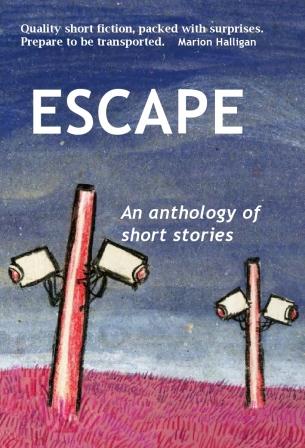 1. Who are the short fiction authors you admire (Australian or otherwise, alive or dead)?
1. Who are the short fiction authors you admire (Australian or otherwise, alive or dead)?
Most of the short fiction I’ve read has been in getting to know the writers’ marketplace, so more than authors, I take note of journals and ezines. Places where I’ve enjoyed the stories include Overland and Meanjin (in Australia), as well as Small Spiral Notebook, Failbetter, The Summerset Review, The Barcelona Review and Narrative (on the internet). Having said that, the short fiction of Julio Cortázar and Annie Proulx blows me away.
2. What is the most memorable short story you have read? And why does it stand out for you?
Sylvia Plath’s Ocean 1212-W. It’s the way she toed the line between poetry and prose. So rich. Also the way she captured the essence of the sea. And it’s got a bit about listening to the poetry of Matthew Arnold as a child, which sums up what good writing can do:
“I saw the gooseflesh on my skin. I did not know what made it. I was not cold. Had a ghost passed over? No, it was the poetry. A spark flew off Arnold and shook me, like a chill. I wanted to cry; I felt very odd. I had fallen into a new way of being happy.”
3. What do you like about the short story form?
I like its punch, and the opportunity it affords for unusual settings and tones. Sometimes a distinctive voice which would become unbearable over an entire novel is very effective and memorable for a few pages. And for the reader and writer, it’s a relatively quick hit in terms of gratification.
4. How would you describe your own writing?
It’s an outlet for things I love or that really bug me, so I guess it reflects real-life issues. I try to depict life as honestly as possible, quite often “sweating the small stuff”.
5. Which of your stories are you most fond of right at this moment and why?
I have one set in a nightclub called “Rules of the Dancefloor”. I’m fond of it because it needs the love! It’s been rejected a couple of times, and I think it deserves a home.
6. Where do the ideas for your stories come from? (Take us through an example)
Usually the idea occurs to me and I just get a feeling that it is the right size and shape for a short story – that it fits the form. But the inspiration comes in lots of different ways. For my story “Cross words”, it was an aggressive email that we received at work. It’s very frustrating when someone throws a whole lot of negative energy at you, and you can’t respond. Instead, I used the email (with details changed, of course) as a jumping off point, fantasising about what it would be like to write back. The story emerged from there.
7. What is your writing process – from idea to publication? (Do you go it alone or are others involved?)
I write a couple of drafts, so that it isn’t embarrassingly raw, then workshop it. If I can do that face to face with a group, great. If not, I call on critique partners via email. After incorporating the comments, I let it sit for a while (a month or so) and come back to it with fresh eyes. If it’s ready at that point I’ll start trying to find a home for it, if not I’ll take it back for more critique.
8. Do you feel the short story form is valued in Australia? What makes you say this?
I don’t see it in terms of “valued” or “not valued” – the form is simply better suited to some things than others. And a lot of people are in the habit of picking up a novel or a non-fiction book rather than an anthology of short stories or a literary journal. Maybe it’s a case of fostering new reading habits – the short story form seems perfectly suited to commuters with e-readers, for example.
9. How do you feel about your work being published in non-print forms such as digital and audio?
I think it’s great. Whatever way the stories reach people is fine by me.
10. What advice would you like to offer Spineless Wonders?
Just keep swimming, just keep swimming… It’s a huge thing for emerging authors to get a short story published and reach an audience. It’s also great for them to have the experience of working with editors. And it’s an exciting time for publishing with the digital revolution – there could be some great opportunities for the short story form. So keep at it!
Mark Vender is a freelance writer, sub-editor and translator. His short stories have appeared in various ezines including The Summerset Review, Word Riot, Eclectica and Slow Trains. He is currently living in Colombia and working on a novel.
*Mark’s story, Cross Words, is published in Escape, Spineless Wonders’ anthology of short stories.
